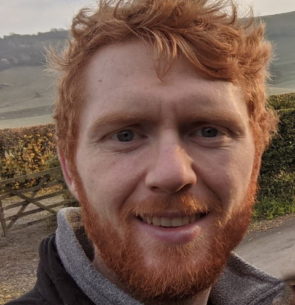
Max Anderson
2021
Max Anderson is a PhD student at the University of Sussex, studying the impacts of livestock management practices on wildlife. So far his work has focussed on how the permanence of pasture and mob grazing systems impact the diversity and abundance of bats and their invertebrate prey, by conducting fieldwork on Pasture Fed Livestock Association (PFLA) farms across the South of England.
As a founding member of the Dung Beetles for Farmers project he has given his expertise to help promote the benefits of dung beetles and how farmers can support them. Dung beetles have become of particular interest to Max, given their importance as prey items for a number of bat species in the UK, and due to the significant role they play in provision of ecosystem services.
During his PhD, he aims to contribute towards a ‘parent project’; Sustainable economic and ecological grazing systems – learning from innovative practitioners (SEEGSLIP), based at the Centre for Ecology and Hydrology. The SEEGSLIP project will not only be looking at the ecological impacts of livestock farming practices, but also at the economic and social dimensions. He is driven to build greater awareness for the importance of conserving and enriching wildlife in agriculture, by promoting the benefits provided by bats, dung beetles and other species. His is particularly keen to help farmers and landowners understand the ecological impacts of management practices by sharing his knowledge and summarising relevant scientific literature.
Further information can be found at www.dungbeetlesforfarmers.co.uk